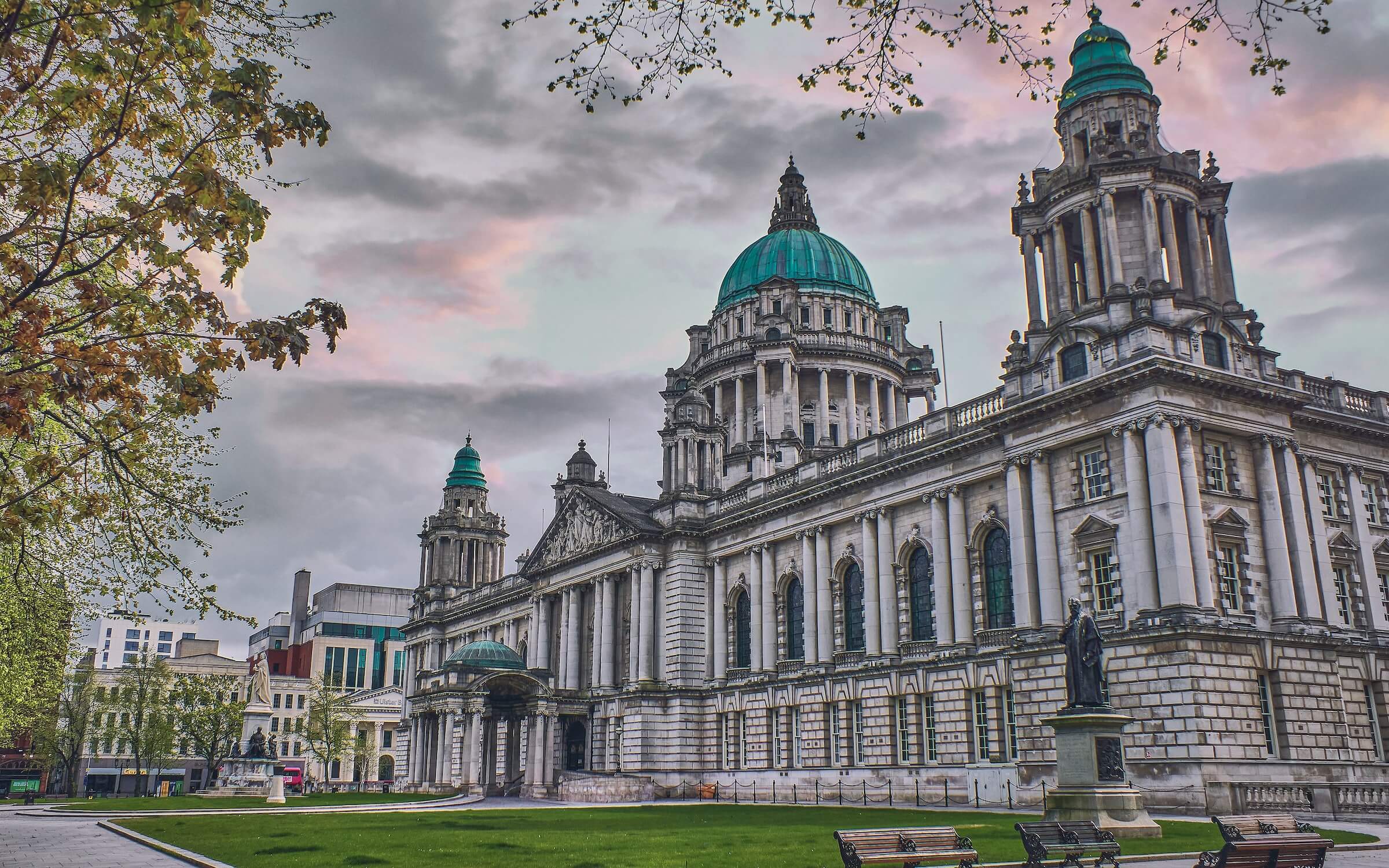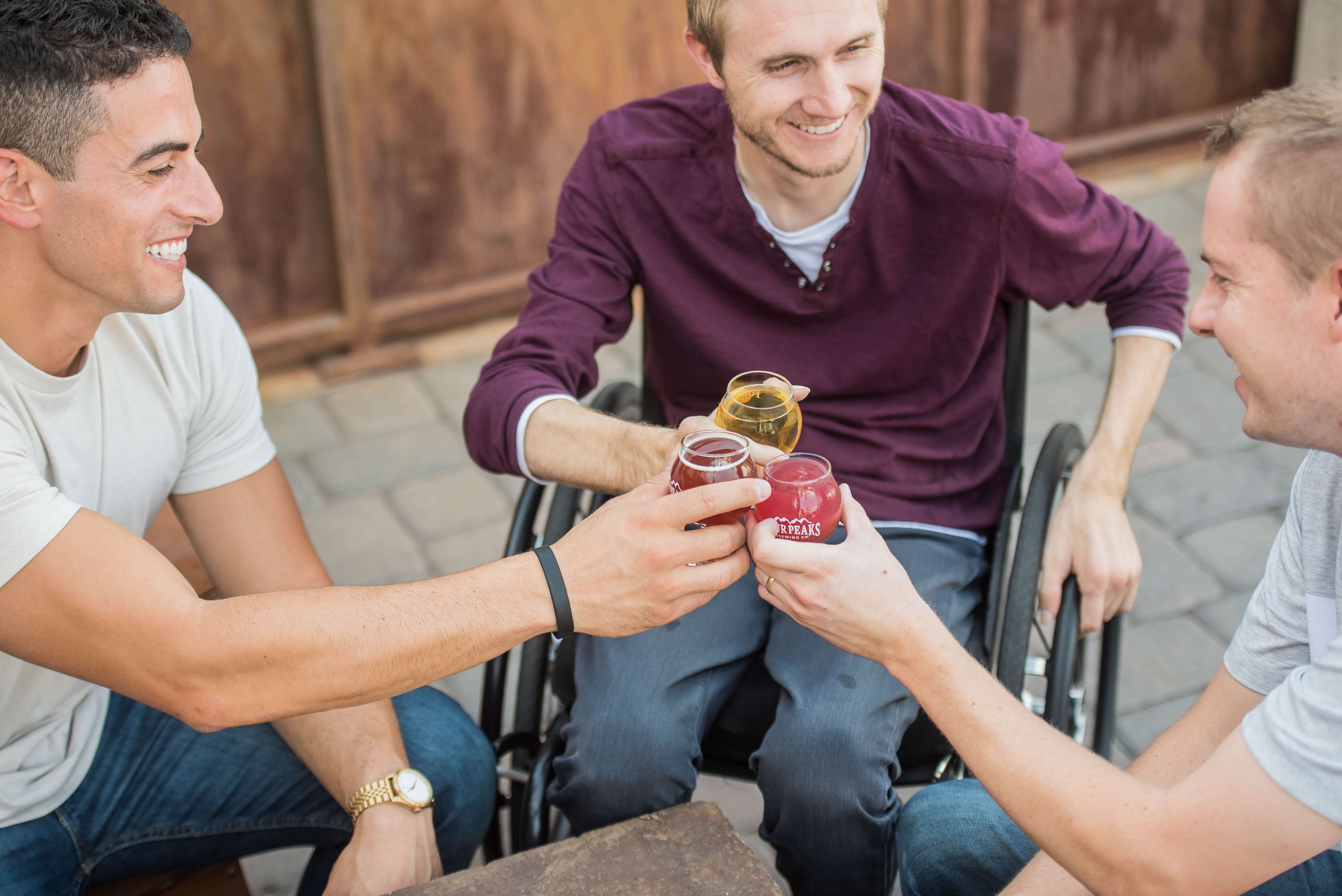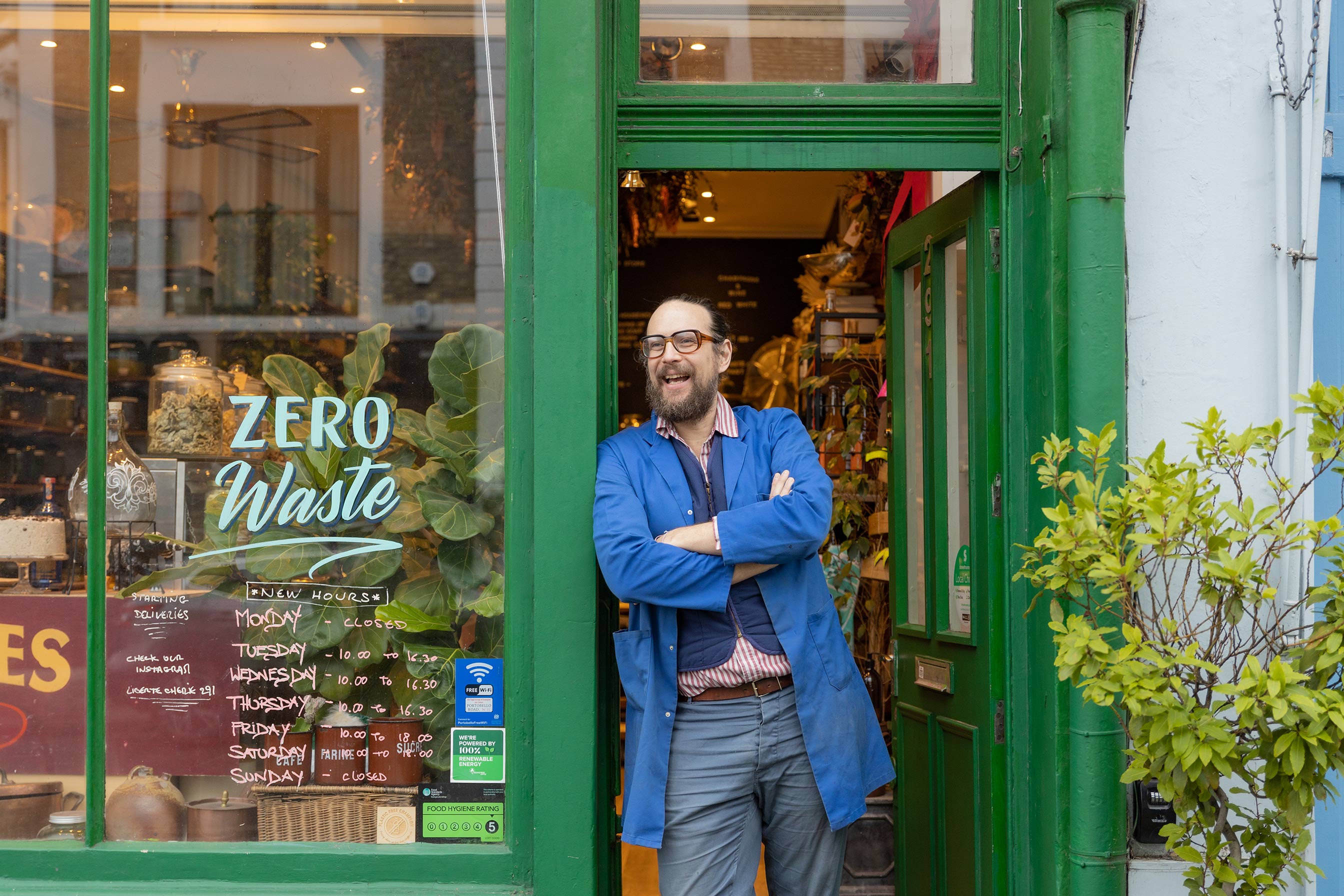The world is becoming more aware of the necessity of accessibility. In fact, it’s now estimated that around one billion people around the world live with some form of disability[1]. So, whether it’s through providing ramps, automatic doors or Braille signage, there is always work to be done to improve accessibility for disabled people so that everyone can enjoy different spaces.
At Dojo, we analysed Tripadvisor’s data on the top 25 most populated UK and global cities. We looked at the percentage of activities, restaurants, cafes, parking and pubs which have accessible access. We also looked into the percentage of hotels that had facilities for disabled guests overall and the percentage of hotels in each city which had facilities for disabled guests. This helped us gauge which cities are more accessible, according to the data collected.
As a card machine payment provider for small businesses across the UK, we also wanted to provide tips and advice to help smaller businesses become more accessible for their customers.
The most accessible cities in the UK
#1 Wolverhampton

According to the data collected, Wolverhampton takes the top spot of the most accessible city in the UK. The West Midlands city scores highly on the percentage of pubs and cafes that are wheelchair friendly (71.6% and 55.7%). Although when it comes to staying overnight, only 16.7% of hotels have facilities for disabled guests so you will need to do some research to find accommodation that will suit your needs. If you’re just visiting for the day, finding disabled parking should be easier as 84% of the parking spaces in the city are accessible - the highest on our list.
Wolverhampton BID (Business Improvement District) has also secured £308,300 for an accessible city for the next five years with the main aim of reducing any barriers to customers and visitors to encourage them to stay longer[2].
[Image credit: Gov.uk]
#2 Belfast

Belfast is fast becoming a popular city break destination thanks to its range of historic landmarks and vibrant nightlife.
Belfast has the second highest percentage of wheelchair-friendly restaurants out of the cities we analysed - standing at 36.2%. Northern Ireland’s capital has more accessibility friendly cafes and pubs than other cities, with 52.9% and 45.9% respectively. It is also the fourth-best UK city for wheelchair accessibility in terms of things to do in the city, with 73 options.
Belfast are keen champions in improving accessibility with many initiatives to support disabled people, including job opportunities, improving access to public parks and supporting disabled people who want to start a small business[3].
#2 Cardiff (joint 2nd)

Across the Irish Sea is Cardiff which joins Belfast at joint second, and scores highly across the index for overall accessibility. Cardiff scores the highest on the percentage of pubs with wheelchair accessibility (70.1%) and the percentage of accessible parking spaces available (82%). Cardiff also offers 42 accessible options in terms of activities and things to do in the city.
Cardiff strives to make the city accessible to everyone who is working and living in the city and has set out an equality and inclusion initiative from 2020-2024[4].
The UK cities with the most accessible restaurants
According to the data collected from Tripadvisor, Leeds takes the number one spot of the UK cities with the most wheelchair-friendly restaurants, with almost half (41.2%) of its 1,723 restaurants offering wheelchair access. Belfast and Wakefield round off the top three best cities for wheelchair access in restaurants with 36.2% and 34.4% respectively.
The UK cities with the most accessible pubs
With 76.9% of its 91 pubs being wheelchair friendly, Coventry is the place to be if you want to enjoy a pint with friends. Wakefield and Wolverhampton closely follow this with 71.6% of their pubs providing accessibility options.
The UK cities with the most accessible cafes
There’s nothing better than relaxing with a coffee and a sweet treat. Wolverhampton takes the lead again for highest percentage of cafes that are wheelchair friendly (55.7%). Similarly, for those in the Midlands, Coventry and Derby also offer wheelchair access in over half of their cafes. 54.9% of Coventry’s 91 cafes and 53.5% of Derby’s provide their customers with accessibility options.
The UK cities with the most accessible hotels
When exploring a new city, finding the perfect place to get some rest before heading out and exploring is essential. Our study discovered that almost a quarter of Newcastle’s hotels have appropriate facilities for disabled guests, ranking them the highest in the UK. Belfast and London ranked next highest, making them potential options for a city break. In Belfast, 22.2% of the 90 hotels analysed are accessibility friendly and 418 (21.6%) hotels in London have facilities for disabled guests.
The UK cities with the most accessible things to do
Attraction accessibility can range from physical, sensory or communication access. Our study discovered that London is the best destination in the UK for inclusive activities and attractions. For those visiting the capital city, they have a choice of 511 accessibility-friendly things to do - including the world-famous British Museum, London Zoo and London Eye. In second place is Edinburgh which has 90 accessible attractions across the city. Completing the top three list is Manchester which offers 85 accessibility-friendly activities around the city.
The most accessible cities in the world
#1 Paris

The French capital and the city of love, Paris takes the number one spot as the most accessible city in the world, according to the data analysed. Paris is most often associated with its exquisite cuisine, so visitors won't have to miss out on indulging in tasty French delicacies as Paris scores the most highly out of the cities analysed across the board for cafes (41%), restaurants (26.9%) and pubs (33.5%) which are wheelchair friendly. There are also 309 wheelchair-friendly sightseeing spots and activities to do and 74% accessible parking spaces around the city.
#2 London

In second place for the most accessible city in the world is London. If you’re looking for an action-packed weekend, the capital city offers 511 things to do with wheelchair access. Whether you want to enjoy a classic pint in a traditional quaint English pub or feast on a scone and jam in a cafe, London scores the second highest in our ranking for wheelchair accessibility in both (45.5% and 36.5% respectively).
#3 Berlin

Rounding off the top three list is Berlin. Dubbed one of Europe’s most accessible cities, Berlin is a champion for accessibility for all and has even won the Access City Award in 2013 for its efforts in becoming more accessible[5].
There are over 172 wheelchair-friendly things to do, 53.8% of hotels have facilities for disabled guests and 58% of the parking is reported to be accessible.
The global cities with the most accessible restaurants
According to the data, Rome, Italy is the global city with the most wheelchair-friendly restaurants (40.3%), closely followed by Paris, France (26.9%) and Lima, Peru (26%).
The global cities with the most accessible pubs
After a long day there is nothing better than a trip to the pub, and where better to sip on the perfect pint than London. The UK capital is named the global city with the most accessible pubs (45.5%). Rome, Italy makes it to second place with 41.2% and Paris, France rounds off the top three list at 33.5%.
The global cities with the most accessible cafes
As the home of espresso, you can see why cafes are very important to Italians in Rome. Just over 50% of the city’s cafes are wheelchair-friendly which means that finding a café in the capital shouldn’t be hard. Paris, France ranks in second with 41% of their 1083 cafes across the city being wheelchair friendly. Tea lovers can rejoice as London takes third place. However you take your brew, 36% of the city’s cafes can accommodate your accessibility needs.
The global cities with the most accessible hotels
Visiting Berlin has never been easier as over 53% of the German capital’s hotels have facilities for disabled guests. Ankara, Turkey (48.5%) and Beijing, China (47.3%) also rank in second and third place for accessibility-friendly hotels.
The global cities with the most accessible things to do
London, UK is one of the most visited cities in the world so it’s no surprise it takes the lead with the most accessible things to do. Attractions in London include the British Museum, Buckingham Palace and Tate Modern. Visitors to Paris and Rome definitely won't struggle to find fun things to do in either - the European cities round off the top three most accessible things to do list at 309 (Paris) and 285 (Rome).
How small businesses can make their businesses more accessible
Our study revealed the cities around the world with the most accessible businesses. However, as the report shows, often under half of amenities are not accessible and there is a lot that needs to be done to improve inclusivity within these spaces. So how can small businesses ensure that they have the right measures in place to be accessible?
Here are some top tips on how your business can be more accessible:
- Training your team
Being disability-aware means having an understanding of both visible and hidden disabilities. It’s important that your staff have a good understanding of how to use the appropriate language and how to meet an individual’s needs. If you’re unsure of how to go about this, there are a number of companies and nonprofits, like Enhance the UK, that offer disability awareness training to help you and your staff learn. - Providing accessible print materials
Many businesses might include print materials for their customers including things like menus and flyers. Using easy-to-read fonts (Arial, Helvetica and Verdana), choosing left text alignment, using 1.5-2x line spacing and choosing the right colours can help those with visual impairments and improve readability. Printed materials can also be made more accessible by including a QR code that takes the user to a video or audio recording of the printed material. - Easy parking and entrances
Another essential way businesses can be accessible for all is by ensuring that they have easy and accessible parking and entrances. Entrances can be made accessible by ensuring there is a ramp or elevator available. Choosing accessible doors and removing any rugs can make sure wheelchair users have easier access to your business. - Wheelchair-accessible restrooms
An accessible toilet is a great facility to have at your businesses. They are usually a toilet with a wide step-free entrance with grab rails and an alarm in case of an emergency. - Reachable and appropriately decorated interiors
If your business requires a counter or high shelves, consider installing a low-level counter and shelves to make sure that everyone can access your services and facilities. In restaurants, make sure you have a range of seating options as high tables and stools aren’t the most disabled-friendly. While the lighting and music of your business will impact the aesthetic, dark and noisy places make it harder for customers with disabilities. You should consider having a section or area with better lighting, where the music is quieter. - Marketing your business with accessibility in mind
When marketing your business it’s important to consider how this can be made accessible, even if it’s online. Make sure to use ALT texts on images as this acts as an explanation of what the image entails. If you are using video content, make sure to include closed captions which provide text for the dialogue in a video. Another simple trick to improve accessibility on social media is to capitalise the first letter of each hashtag. Capitalising each word makes it easier for assistive technology to read hashtags as intended.
These tips are very much just a starting point in terms of improving accessibility within your business. Google is a great resource to use to find small, within budget ways to make your business accessible for all. VisitBritain also has some great free resources and guidance available for businesses, especially those in the tourism industry, which you can find here.
Legislations and regulations you need to know about making your business accessible
As a business owner, it’s your obligation - both legal and moral - to make your premises as accessible as possible for those with disabilities and accessibility needs. This can include anything from providing safe wheelchair ramp access or supporting individuals in the workplace with tailored provisions.
There are several legal requirements that you should be aware of as failing to meet your accessibility obligations can have serious legal consequences - so don't put it off.
The Equality Act 2010 made it a requirement for all organisations to show they are taking 'positive steps' to remove 'barriers' that individuals face due to their disabilities.
For your actions to qualify as 'reasonable’, you need to take into account factors such as:
- The type and level of disability
- How easy the proposed changes will be to make
- How many resources and finance you have available
Employers must make reasonable adjustments to make sure workers with disabilities are not substantially disadvantaged when doing their job.
Reasonable adjustments could include:
- Changing the recruitment process so a candidate can be considered for a job
- Making physical modifications to the workplace such as installing a ramp for a wheelchair user or an audio-visual fire alarm for a deaf person
- Changing their equipment - for instance, providing a special keyboard if they have arthritis
Choosing the right card machine for your business
At Dojo, we understand that not all businesses are the same and have different needs. However, all businesses do need to make sure they can take payments, so it’s important that small business owners take the time to understand which type of card machine they need. We help businesses across the UK with card payments, making it easier to process takings securely.
Methodology
Data was gathered from multiple sources to determine which city was the most accessible:
- Population of cities in the UK and worldwide from Worldwide Population Review.
- Accessible Restaurants from TripAdvisor
- Accessible Hotels from TripAdvisor
- Accessible Cafes from TripAdvisor
- Accessible Pubs from TripAdvisor
- Accessible Tourist Attractions from TripAdvisor
- Accessible Car Parks from Parkopedia
The data was used to calculate the percentage of restaurants, cafes and pubs which were accessible and the percentage of hotels in each city which had facilities for disabled guests. This data was put into an index and each city was given an overall score out of 25. The UK index is based on a max index score of 150 while the worldwide data sheet is based on a max index score of 141.
Sources
[1] Disability: The global picture
[2] Wolverhampton BID Business Plan
[3] A city for everyone: ICC Belfast's accessibility enhancements will increase participation
[4] Cardiff: Equality & Inclusion Strategy 2020 - 2024
[5] Accessible Berlin: Exploring in your own way: Making your Berlin trip an accessible experience


